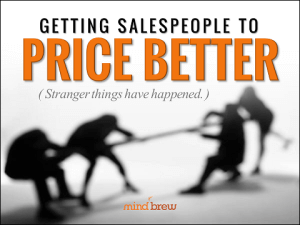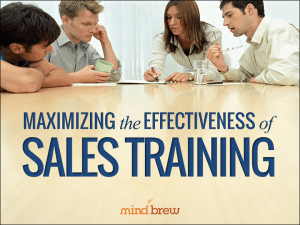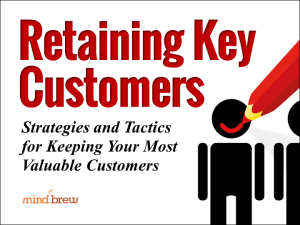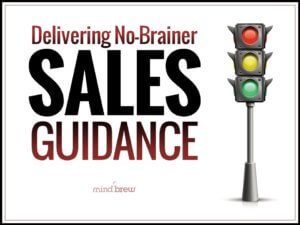Sales ops is still a relatively new function for most B2B organizations, and as a result, there isn’t a lot of agreement on what sales ops should do.
At some organizations, sales ops are the people who track the numbers. They’re responsible for monitoring which reps are meeting their quotas, how many leads are being converted into sales, and how much revenue those sales are generating.
At other organizations, sales ops takes on more of a sales support role. They’re setting up meetings, updating the CRM system, maybe even making inside sales calls and/or creating sales collateral.
But in our experience, the most successful sales ops teams are taking a very strategic approach. Instead of focusing on details and tactics, they take the big picture view, monitoring the overall performance of the sales department and making recommendations for ways that the systems and processes can be improve. They aren’t just helping salespeople become more efficient, they’re making the entire sales operation more effective.
How, specifically, are they doing that?
Leading sales ops teams focus on seven key areas:
- Sales strategy development and ongoing refinement. Ideally, your company’s sales strategy provides direction for your sales team by answering fundamental questions about who they should be targeting, what offerings they should be promoting, why prospects should choose your products and services, where salespeople should be selling to prospects, and when they should be engaging with prospects. Over time, sales ops should monitor how your current strategy is performing and recommend tweaks for making the strategy more effective. The webinar Anatomy of a Competition-Crushing Sales Strategy explains this process in depth and offers tips for making your strategy as effective as possible.
- Demand generation and prospect development. Many sales organizations waste time and money chasing business that isn’t a good fit for their companies. The best sales ops teams use the data at their disposal to identify the deals that their organization has a good chance of winning and that will be the most profitable in the long run. To learn more about how this process works, we recommend the webinar How to Target Your Best Prospects. It identifies the number one performance booster for sales teams, two methods for making better targeting decisions, and tips for avoiding common mistakes.
- Sales pipeline and sales process optimization. The best way to improve your sales process isn’t to make huge, sweeping changes. Instead, the most successful companies make small tweaks that yield significant rewards. The sales ops team is uniquely positioned to identify bottlenecks and suggest the minor changes that could result in significantly better sales. The webinar How to Optimize Your Sales Process gets into the details of how to find those small tweaks and make the changes that will lead to continual improvements.
- Pricing, discounting, and negotiation improvement. Too many salespeople don’t understand the impact that small, one or two percent price reductions can have on the bottom line, and they haven’t been trained in negotiating techniques. Improving pricing behavior is one of the most effective techniques sales ops can use to improve profitability, but actually getting salespeople to make the changes necessary can be a little tricky. The training seminar Getting Salespeople to Price Better delves into the psychology of negotiation and suggests some proven techniques that other companies have used to get their sales teams on board with good pricing practices.
- Prescriptive account and territory planning. If your current approach to account planning isn’t working for you, check out the webinar on Leading-Edge Account and Territory Planning. It explains how top sales ops teams are getting away from doing more busywork and instead are taking a more strategic approach to account and territory planning, an approach that focuses on finding using data to find untapped opportunities that their salespeople can pursue and win.
- Sales training program design and development. All too often, B2B sales training focuses primarily on getting the sales team revved up to make more sales rather than actually giving them the tools and skills they need to do their jobs. The best sales ops teams are aligning their sales training with their sales strategy and developing long-term training plans that increase the effectiveness of their sales reps. There’s no one-size-fits-all training that will work for every B2B company, but the webinar Maximizing the Effectiveness of Sales Training offers a seven-step process for finding the training that will work best for you.
- Account expansion and customer retention. Many B2B firms sell into defined markets; that is, they have a limited number of prospects for their products and services. For these companies in particular, keeping the customers they have and getting those customers to buy more are of paramount importance. And even if you don’t have a defined market, it’s always easier to retain and grow your current accounts than to find new ones. To help with these goals, SellingBrew has a pair of resources—Generating More Sales from Existing Customers and How to retain your key customers—that explain the role that sales ops can play in expanding wallet share and preventing customer defection.
No matter what your sales ops team is doing today, if you focus on these seven strategic areas, you’ll help your sales team and your entire firm become more successful.
Anatomy of a Competition-Crushing Sales Strategy

The better your sales strategy, the easier it is for your sales team to achieve their objectives. But sales strategy is often misunderstood. In this on-demand training session, learn how leading sales operations are improving their sales strategies to win more business, while actually competing less.

















